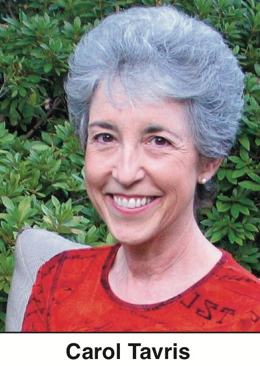Rascals case in brief
In the beginning, in 1989, more than 90 children at the Little Rascals Day Care Center in Edenton, North Carolina, accused a total of 20 adults with 429 instances of sexual abuse over a three-year period. It may have all begun with one parent’s complaint about punishment given her child.
Among the alleged perpetrators: the sheriff and mayor. But prosecutors would charge only Robin Byrum, Darlene Harris, Elizabeth “Betsy” Kelly, Robert “Bob” Kelly, Willard Scott Privott, Shelley Stone and Dawn Wilson – the Edenton 7.
Along with sodomy and beatings, allegations included a baby killed with a handgun, a child being hung upside down from a tree and being set on fire and countless other fantastic incidents involving spaceships, hot air balloons, pirate ships and trained sharks.
By the time prosecutors dropped the last charges in 1997, Little Rascals had become North Carolina’s longest and most costly criminal trial. Prosecutors kept defendants jailed in hopes at least one would turn against their supposed co-conspirators. Remarkably, none did. Another shameful record: Five defendants had to wait longer to face their accusers in court than anyone else in North Carolina history.
Between 1991 and 1997, Ofra Bikel produced three extraordinary episodes on the Little Rascals case for the PBS series “Frontline.” Although “Innocence Lost” did not deter prosecutors, it exposed their tactics and fostered nationwide skepticism and dismay.
With each passing year, the absurdity of the Little Rascals charges has become more obvious. But no admission of error has ever come from prosecutors, police, interviewers or parents. This site is devoted to the issues raised by this case.
On Facebook
Click for earlier Facebook posts archived on this site
Click to go to
Today’s random selection from the Little Rascals Day Care archives….
Click for earlier Facebook posts archived on this site
Click to go to
Today’s random selection from the Little Rascals Day Care archives….
If only reality had offered such vivid details….
 Jan. 9, 2013
Jan. 9, 2013
“One question that arises from studies on children’s suggestibility is whether they document false memories or merely false reports. Do children really believe that the fictional events happened? Or do they merely say so to please the interviewers?
“Consistent with the false memory interpretation, approximately one-third of the children in these studies continued to insist that particular events had really happened to them even after they were told those events were not real….
“Lacking any obvious motivation to lie, these children appeared to have developed false memories, perhaps confusing the products of their repeated attempts to visualize the events with the products of direct experience….
“Professionals were no better than chance at discriminating false from true reports. The credibility of a child’s account was related to the amount of perceptual detail mentioned in the child’s narrative. The more details, the more professional tended to believe the narrative, regardless of whether it was true.”
– From “Remembering Trauma” by Richard J. McNally (2003)
To better understand how the Little Rascals therapists went so wildly astray, give that last paragraph a second reading. “Professionals were no better than chance at discriminating false from true reports” – and they were mesmerized by the “perceptual detail” in those tales of sharks and spaceships.
‘Burying the memory’: Misconception that won’t die
 Jan. 23, 2013
Jan. 23, 2013
“Ritual sex abuse is back. Recently (in 2003) I heard that a conference on the topic was being held for psychotherapists.
“It was planned not to critique a nasty period in the annals of American hysteria but rather so that attendees could learn to ask patients if they’ve ever been raped in day care by secret devil worshipers.
“This stuff was debunked in the 1990s as a type of urban myth. Yet it keeps cropping up, complete with pseudo-scientific theories about the psychology of so-called victims – theories that likewise refuse to die.
“One such theory is that children who are molested often grow up to deny that the crime ever happened. Many do so, the theory holds, because people commonly repress or dissociate from memories of horrific trauma – particularly sex abuse.
“This idea has been repeatedly discredited by research psychologists. But… in pop culture and among many child-protection workers, it’s still de rigueur to think that a child who was fondled or raped is at risk of burying the memory.”
– From “The Exorcists” by Debbie Nathan in the Washington Post (May 4, 2003)
Immunity of office allows zeal, recklessness to go unchecked

longform.org
Ariel Levy
June 29, 2016
“Compensation is intended in part as a deterrent: a municipality that has to pay heavily for police or prosecutorial misconduct ought to be less likely to allow it to happen again. But it is taxpayers, not police or prosecutors, who bear the costs of litigation and compensation. Prosecutors enjoy almost total immunity in cases of misconduct, even if they deliberately withhold exculpatory evidence from a jury. A 2011 Supreme Court ruling also made it virtually impossible to sue a prosecutor’s office for such violations….”
– From “The Price of a Life: What’s the right way to compensate someone for decades of lost freedom?” by Ariel Levy in the New Yorker (April 13, 2015)
To “deliberately withhold exculpatory evidence” seems all too neatly illustrated in Bob Kelly’s trial. Here’s how the North Carolina Court of Appeals described the prosecution’s actions:
“Judge L. Bradford Tillery, a pretrial Judge, directed the State to file and present for in camera review identifying information, medical and psychotherapeutic files and DSS files with respect to the ‘indictment children’….
“In apparent compliance with Judge Tillery’s order… the State turned over a box of files to the trial court, Judge (Marsh) McLelland presiding. The box contained, inter alia, complete medical notes and therapy notes on the 29 indictment children, 12 of whom testified at defendant’s trial and 17 of whom did not….
“After trial, defendant’s appellate counsel went to the Office of the Clerk of Court for Pitt County to view the exhibits. He opened several boxes containing trial exhibits, none of which were sealed. One of the boxes contained 29 files labeled with the names of the indictment children…. Defendant argues that the files contained undisclosed information that would have been material to the defense.”
To wit, the withheld files were bulging with exculpation – conflicting claims, evidence of hysteria, eyewitness testimony that nothing happened.
Prosecutors H.P. Williams Jr., Bill Hart and Nancy Lamb walked away rebuked by the Appeals Court but otherwise unpenalized. How differently might the Little Rascals case have unfolded had they known their recklessness wouldn’t be shielded by prosecutorial immunity?
![]()
When imaginary crime leads to real punishment
 Aug. 20, 2015
Aug. 20, 2015
“In the mid-1980s, a friend of mine testified on behalf of an elementary-school teacher who had been accused of being a pedophile.
“A child had told his mother that the teacher had taught them about ‘boobies and dicks’ and had drawn a picture on the blackboard that sounded suspiciously to the mother like an image of an ejaculating penis.
“The police had raced to the classroom and confiscated the damning evidence: several copies of ‘Moby-Dick.’ What the teacher had drawn was a whale and its spout.
“Looking back, we can see that the only boobies involved in this case were the adults. But whenever we are in the midst of a moral panic, as we were in the 1980s, we feel that our alarm is reasonable and that punitive solutions are appropriate.
“Dicks? That child knew the word ‘dicks’? Cancel sex ed! Run that teacher out of town!…”
– From “A Very Model Moral Panic” by Carol Tavris in the Wall Street Journal (Aug. 7)











0 CommentsComment on Facebook